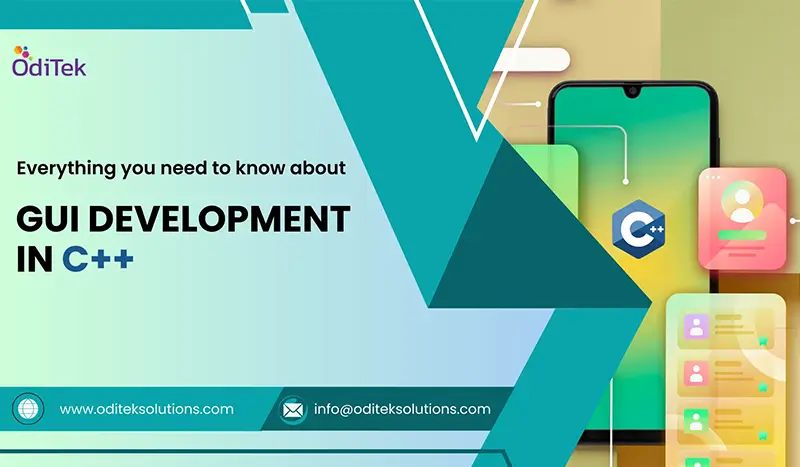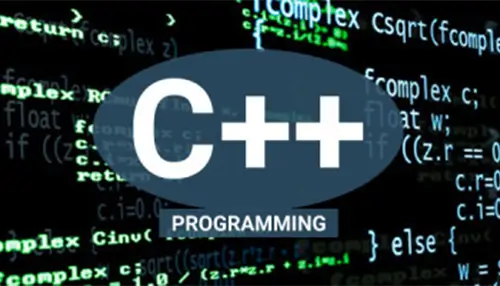These days, modern software applications requires Graphical User Interfaces (GUIs) the most. They enhance user interaction, making applications more user-friendly and visually appealing. C++ has been a popular choice for building robust and efficient software, and when it comes to GUI development in C++, there is a wide array of tools and services available. In this comprehensive guide, we will explore the best tools for C++ development and the essential aspects of C++ GUI development. Whether you’re a seasoned C++ developer or just starting, this article will provide valuable insights into creating stunning GUI applications in C++.
The Power of C++ in Software Development
Before diving into GUI development, it’s essential to understand why C++ is a favoured choice for software development. C++ is a versatile and high-performance programming language known for its:
Efficiency: C++ allows for low-level memory manipulation, making it ideal for resource-intensive applications like games, simulations, and real-time systems.
Portability: C++ code can be compiled for various platforms, ensuring cross-platform compatibility.
Extensibility: It supports both procedural and object-oriented programming paradigms, making it suitable for a wide range of applications.
Community Support: C++ has a robust community of developers, which means extensive libraries and resources are available.
Given these advantages, it’s no surprise that C++ is a go-to choice for GUI development in many industries.
Best Tools for C++ Development
Effective GUI development in C++ begins with choosing the right development environment and tools. Let’s explore some of the best tools for C++ development.
1. Integrated Development Environments (IDEs)
1.1. Visual Studio
Microsoft’s Visual Studio is a widely used IDE for C++ development. It offers a powerful set of tools, including a robust code editor, debugger, and an intuitive user interface. Visual Studio also provides excellent support for GUI development through libraries like MFC (Microsoft Foundation Classes) and Qt.
1.2. Qt Creator
Qt Creator is an IDE specifically designed for developing applications using the Qt framework, which is a popular choice for C++ GUI development. It offers a drag-and-drop interface designer and integrated tools for testing and debugging, making it an excellent choice for creating cross-platform GUI applications.
1.3.CLion
CLion, developed by JetBrains, is another noteworthy IDE for C++ development. It offers code analysis, refactoring tools, and seamless integration with CMake, a popular build system. CLion’s intelligent code completion and debugging features enhance the development process.
2. GUI Libraries
2.1. Qt
Qt is a powerful C++ framework for developing cross-platform GUI applications. It provides a comprehensive set of libraries, tools, and widgets, making it easier to create beautiful and responsive interfaces. Qt’s signal-slot mechanism simplifies event handling, while its robust documentation and community support are invaluable resources.
2.2. GTK+
GTK+ is another popular choice for GUI development in C++. It is especially well-suited for developing Linux applications. GTK+ provides a wide range of widgets and is known for its flexibility and ease of use. It also supports multiple programming languages, including C++.
2.3. wxWidgets
wxWidgets is a C++ library that allows you to create native-looking GUI applications for various platforms, including Windows, macOS, and Linux. It provides a consistent API across platforms, making it easier to maintain and update your codebase.
3.Build Tools
3.1. CMake
CMake is a widely used build system that simplifies the compilation and build process for C++ projects. It is known for its flexibility and the ability to generate build files for various platforms and IDEs, including Visual Studio, Qt Creator, and CLion.
3.2. Make
Make is a classic build tool for C and C++ projects. While it may not have the user-friendly features of modern build systems, it remains a powerful choice for managing complex project structures.
C++ Software Development Services
If you’re working on a large-scale project or require specialized expertise, you might consider leveraging C++ software development services. These services can provide you with experienced developers who are well-versed in GUI development and can help you navigate the complexities of C++.
Benefits of C++ Software Development Services
1. Expertise: C++ software development services often employ highly skilled developers with extensive experience in GUI development.
2. Efficiency: By outsourcing development tasks, you can focus on your project’s core goals while experts handle the technical aspects.
3. Cost-Effectiveness: Outsourcing can be cost-effective, especially when you don’t have to maintain a full-time development team.
4. Faster Time-to-Market: Professional services can accelerate development, helping you get your GUI application to market sooner.
Choosing the Right Software Development Service
When selecting a software development service for your C++ GUI project, consider the following factors:
1. Portfolio: Review the company’s previous projects and ensure they have experience in GUI development using C++.
2. Skills and Expertise: Verify the expertise of the developers who will be working on your project.
3. Communication: Clear communication is crucial. Ensure that you can effectively communicate your project requirements and expectations.
4. Cost and Budget: Discuss pricing and ensure it aligns with your budget constraints.
GUI Development in C++ : Key Considerations
Building a successful GUI application in C++ involves several crucial considerations. Here are some essential aspects to keep in mind:
1. Design and User Experience
User interface design is a critical factor in GUI development. Consider the user experience (UX), and create intuitive and visually appealing interfaces. Tools like Qt Designer and Glade can help with designing GUI layouts.
2. Event Handling
C++ GUI applications rely heavily on event-driven programming. Understanding how to handle events and connect them to actions is fundamental. Libraries like Qt use a signal-slot mechanism for this purpose.
3. Platform Independence
If your application needs to run on multiple platforms, ensure that your chosen GUI library supports cross-platform development. Qt and wxWidgets are excellent choices for achieving this.
4. Performance Optimization
C++ excels in performance, but it’s essential to optimize your code for efficiency, especially in resource-intensive applications. Profiling tools and careful memory management can help achieve optimal performance.
5. Testing and Debugging
Thoroughly test your GUI application to identify and fix bugs. IDEs like Visual Studio, Qt Creator, and CLion offer robust debugging tools to aid in this process.
6. Documentation
Maintain comprehensive documentation for your codebase. This helps with future maintenance and allows other developers (including yourself) to understand the code.
Conclusion
GUI development in C++ is a powerful and versatile approach to creating software applications. Choosing the best tools and services for your project is crucial for success. With the right IDEs, GUI libraries, and development services, you can build visually stunning and highly functional applications.
OdiTek, with its team of experienced C++ developers and a proven track record in GUI development, provides the expertise and support needed to bring your vision to life. Whether you’re developing a desktop application, a game, or an embedded system, OdiTek offers the performance and flexibility needed for a wide range of projects.







